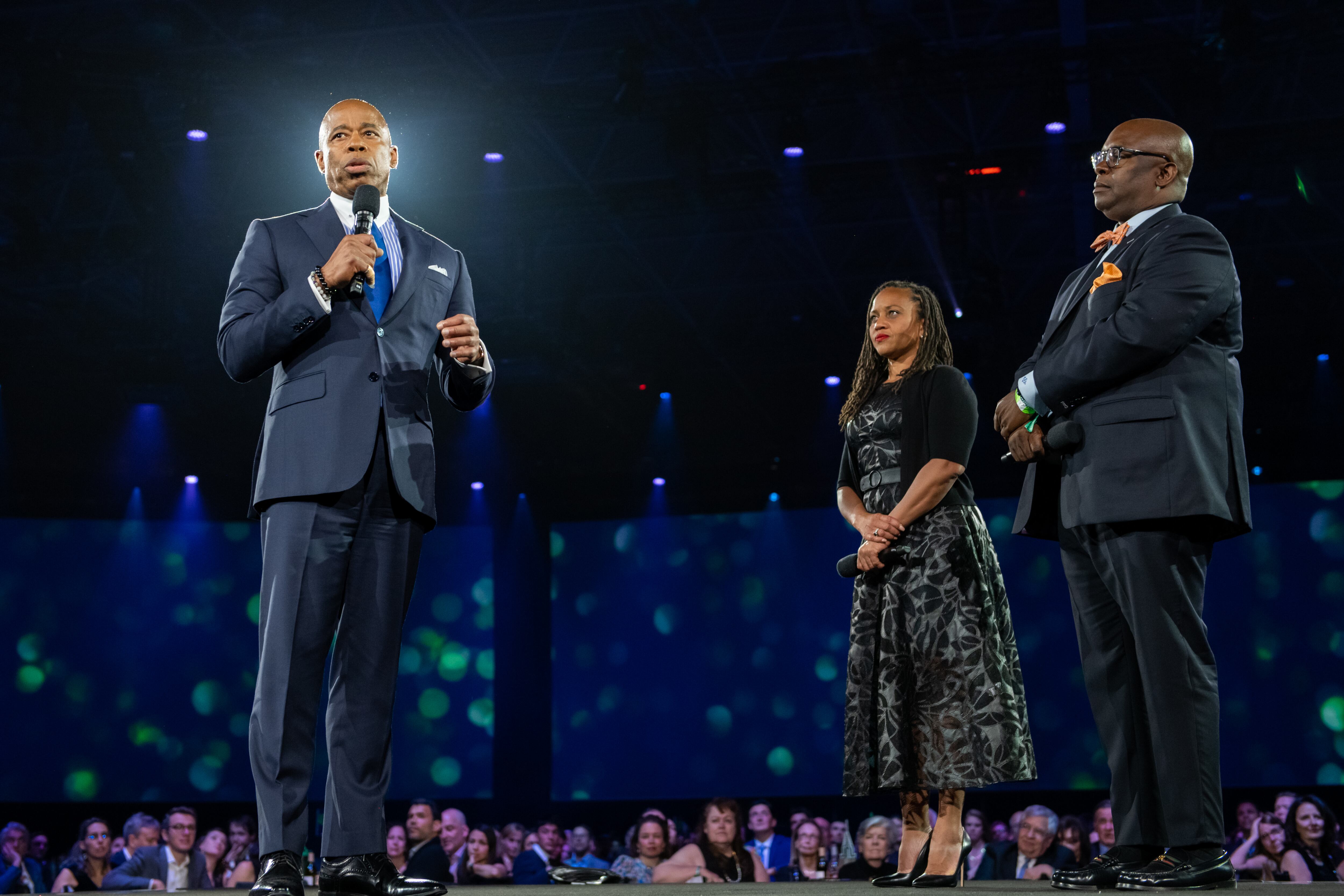A new public-private partnership plans to invest $100 million in New York City’s youngest residents by supporting child care providers and expanding access to care for families.
The new effort, which is being called the Child Care Quality & Innovation Initiative for New York City, is funded by matching $50 million commitments from both the city and antipoverty nonprofit Robin Hood. The nonprofit has raised $25 million from Reddit co-founder Alexis Ohanian and another $10 million from the Bezos Family Foundation, but it’s unclear the source of the rest of the funding.
The splashy unveiling of the initiative, which took place Monday night at Robin Hood’s annual fundraising gala, included an auction for a trip to space donated by Jeff Bezos’s Blue Origin. Two public school teachers are expected to take the trip, donated by Citadel Founder and CEO Ken Griffin who won the bid for $8 million.
Many of the partnership details, including a timeline, have yet to be decided, officials said. New York City’s portion of the money is expected to come over four years, through state and federal grants. Among the goals: opening child care slots in neighborhoods where there are few options, expanding hours of care for families who work non-traditional schedules, making it easier for parents to access subsidies, and boosting the quality of care with investments in the workforce.
The initiative comes as parents try to head back to work after major disruptions caused by the pandemic, and providers have struggled to keep their businesses open amid declining enrollment.
“You need to make these investments to strengthen the system at this really crucial period,” said Gregory Brender, director of public policy for the Day Care Council, which represents providers.
With the infusion of money, New York City is turning its attention to infants and toddlers after a historic expansion of pre-K, making it free for every 4-year-old and opening slots in every district for 3-year-olds.
But even as pre-K became more available and affordable, many families with younger children continued to struggle. It costs almost $19,000 to enroll in center-based programs or more than $10,000 for programs that are run out of providers’ homes, putting care out of reach for many families. Many women who have left the workforce during the pandemic have not returned, with 35% of those reporting lack of child care as the reason, according to census data analyzed by the advocacy group Citizens’ Committee for Children.
The high-profile initiative comes on the heels of another big gift to New York City’s education sector: Former Mayor Michael Bloomberg recently donated $50 million so that charter schools could offer summer school programs and another $200 million to the Success Academy charter network and to Harlem Children’s Zone.
Wealthy backers have helped fund a range of education reform efforts in the past, though their lofty goals haven’t always worked out. One of the most high profile and controversial investments was $100 million from Facebook founder Mark Zuckerberg to help improve Newark schools. Studies there showed the effort produced mixed results, with students making gains in reading but none in math after an initial rocky three years of declines.
Jessica Sager, CEO and founder of All Our Kin, a nonprofit that supports home-based child care providers and a longtime grantee of Robin Hood, felt hopeful for how the initiative will play out in New York City.
“We see a real commitment on the part of the city, we see a real commitment on the part of Robin Hood. We have every reason to believe there is real knowledge and lived experience that will inform these plans on the ground,” Sager said.
Christina Veiga is a reporter covering New York City schools with a focus on school diversity and preschool. Contact Christina at cveiga@chalkbeat.org.







